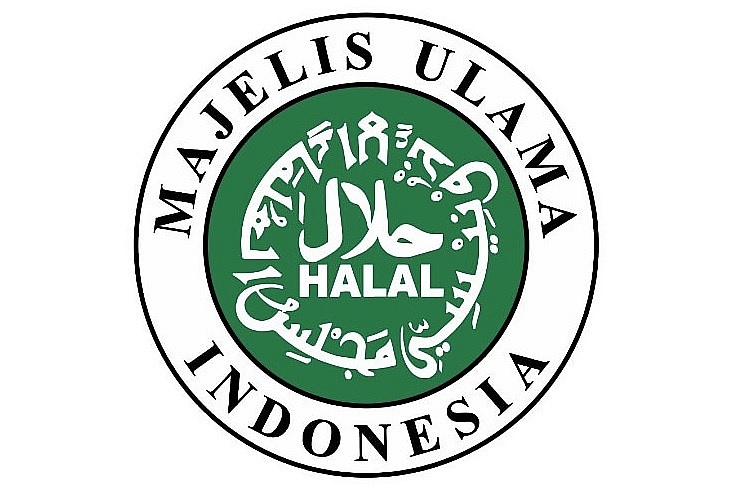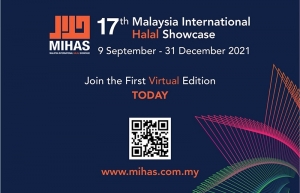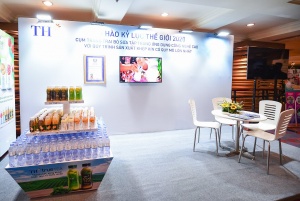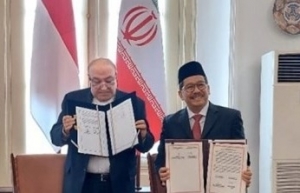Vietnam determined to tap into thriving Halal market
Vietnamese State President Vo Van Thuong in mid-January urged Indonesia to open its doors wider for Vietnamese agricultural and Halal products, marking a significant step in bolstering bilateral trade ties.
 |
| MUI Halal Certification – Indonesia |
In an equally encouraging response, Indonesian President Joko Widodo also recognised the increasing interest of Indonesian businesses in the Vietnamese market, stating that the nation is eager to see more Vietnamese enterprises extend their operations to Indonesia.
“Given Southeast Asia’s distinction as the region with the world’s largest Muslim population - approximately 277 million, or 42 per cent of the regional populace - the Halal market is enormously influential. Indonesia, as the world’s most populous Muslim-majority country, presents an unparalleled opportunity for the Halal industry,” he said.
Halal is a term of significant religious importance in Islam, denoting products or actions that are permissible within the faith’s guidelines.
Vietnam’s Prime Minister Pham Minh Chinh further elaborated on the combined demographic heft of the two nations, almost 400 million people, representing a significant share of ASEAN’s populace.
“Vietnam’s agricultural prowess, coupled with our capacity to produce Halal food ingredients, lays the groundwork for fruitful collaborations with Indonesian businesses,” he stated, envisioning a partnership that extends beyond mere trade to encompass Halal certification and production.
Vietnam’s strategic orientation towards the Halal sector is not just about tapping into Indonesia’s substantial Muslim market.
“Our goal is to establish a foothold in Indonesia, which would be instrumental in accessing the global Halal market, poised to be valued at $10 trillion by 2028,” PM Chinh emphasised.
This bilateral engagement goes beyond conventional trade dynamics. Both nations are aligned in their sustainable development goals, with Vietnam targeting net-zero emissions by 2050 and Indonesia aiming for the same post-2060.
“This partnership is a testament to our shared vision for a sustainable economic future,” the PM said.
On the other hand, Vietnam’s foray into the Halal market in ASEAN countries has seen a modest trade turnover, amounting to just over $1.11 billion, with Indonesia being the largest contributor at approximately $430 million in the first nine months of 2023, as per the General Department of Vietnam Customs.
Ly Kim Chi, president of the Ho Chi Minh City Food and Foodstuff Association (FFA), pointed out the cultural and procedural nuances of this market.
“The difference in business culture, consumer tastes, and particularly the intricate Halal certification process, which varies across Islamic nations, are key factors,” she said. “Bidrico, for example, underwent a 12-step process to obtain Halal certification for its products, illustrating the challenges faced.”
For companies like Mekong Herbals, obtaining Halal certification is a complex, resource-intensive process.
“It demands a high level of expertise and adherence to stringent production standards,” explained Le Thi Phuong, the company’s business director. “The prohibition of certain ingredients and the requirement for separate production lines for Halal products add to the complexity.”
She also highlighted the financial implications for businesses, especially smaller enterprises, saying, “The high cost of certification, meeting various international standards like GMP, ISO, and HACCP, as well as adhering to Global GAP and Organic standards for raw materials, poses a significant challenge.”
Despite these hurdles, only about 50 Vietnamese companies obtain Halal certification each year, mainly in seafood, beverages, and confectionery.
“Only a few of our members like Vinamilk and Bibica have achieved certification and are able to export,” said Chi of the FFA. “The absence of a state body for Halal certification in Vietnam complicates access and increases costs, affecting the export competitiveness.”
However, the global Halal market, currently valued at $7 trillion and expected to reach $10 trillion by 2028, presents significant opportunities. “Countries with large Muslim populations are increasingly seeking collaboration with Vietnam in the Halal sector due to rising demand,” Chi added.
Vice Chairman Vo Van Hoan of Ho Chi Minh City People’s Committee highlighted that the Vietnamese government is keen on developing its Halal industry through international collaboration.
“This commitment is evident in the prime minister’s directive for a project to bolster the sector by 2030, involving key ministries like science and technology and industry and trade, focusing on establishing national Halal standards and a dedicated certification centre,” he said.
| The global halal food market reached almost $2.47 trillion in 2023. The market is slated to reach $5.8 trillion by 2032, exhibiting a compound annual growth rate of 9.7 per cent in the period. This sector is experiencing strong growth driven by an increasing Muslim population, rising consumer awareness, rapid multiculturalism and globalisation, stringent standardisation, growing health and safety concerns, and the proliferation of e-commerce and digital marketing.Source: IMARC Group |
 | Halal digital event showcases trade The Malaysia External Trade Development Corporation is facilitating high-value, cross-border halal trade digitally at an international event which is now in its final month. |
 | TH Group enters the halal market With its long-term vision for the potential halal market, TH Group has been exploiting all possible opportunities to market relevant products. |
 | Indonesia, Iran ink MoU to boost Halal products cooperation The governments of Indonesia and the Islamic Republic of Iran have reached a memorandum of understanding (MoU) on cooperation in Halal products assurance (JPH). |
What the stars mean:
★ Poor ★ ★ Promising ★★★ Good ★★★★ Very good ★★★★★ Exceptional
Related Contents
Latest News
More News
- Ho Chi Minh City launches plan for innovation and digital transformation (February 25, 2026 | 09:00)
- Vietnam sets ambitious dairy growth targets (February 24, 2026 | 18:00)
- Masan Consumer names new deputy CEO to drive foods and beverages growth (February 23, 2026 | 20:52)
- Myriad risks ahead, but ones Vietnam can confront (February 20, 2026 | 15:02)
- Vietnam making the leap into AI and semiconductors (February 20, 2026 | 09:37)
- Funding must be activated for semiconductor success (February 20, 2026 | 09:20)
- Resilience as new benchmark for smarter infrastructure (February 19, 2026 | 20:35)
- A golden time to shine within ASEAN (February 19, 2026 | 20:22)
- Vietnam’s pivotal year for advancing sustainability (February 19, 2026 | 08:44)
- Strengthening the core role of industry and trade (February 19, 2026 | 08:35)

 Tag:
Tag:



















 Mobile Version
Mobile Version